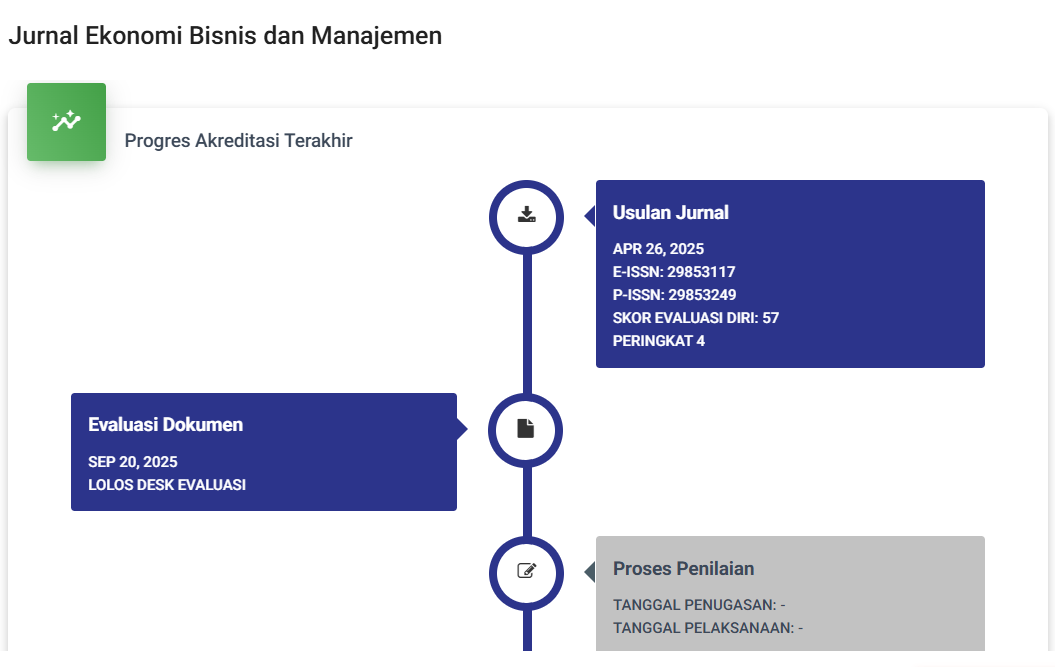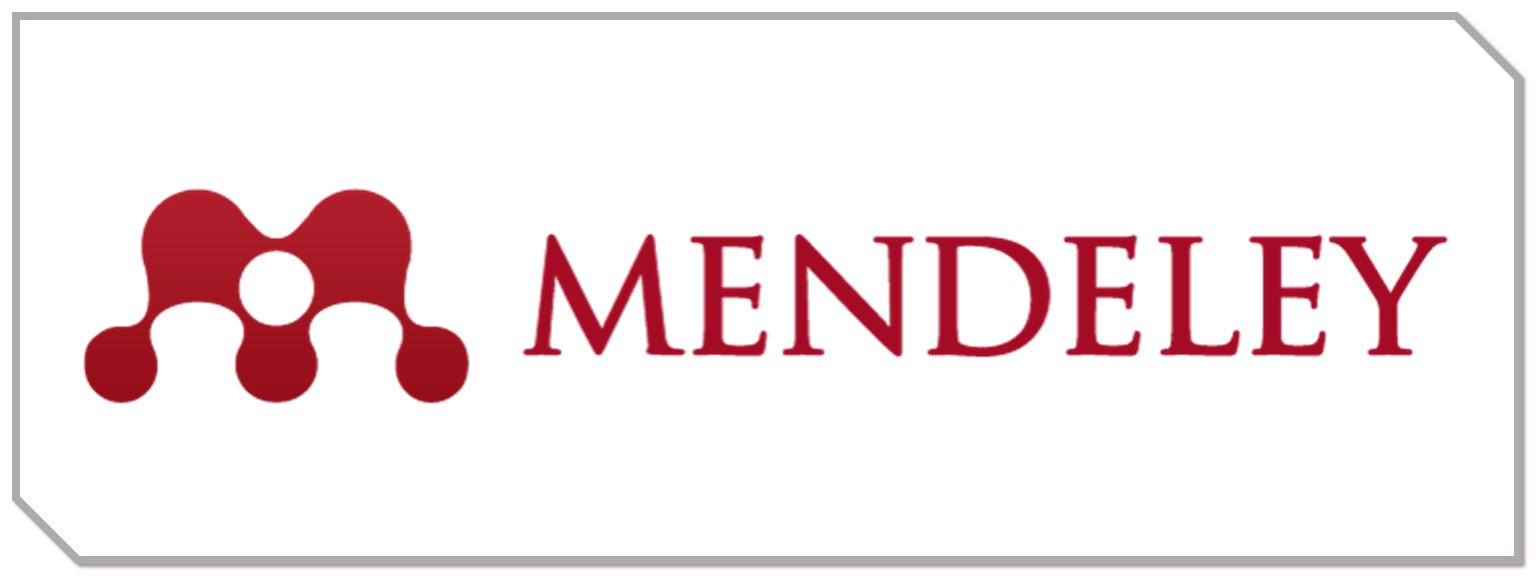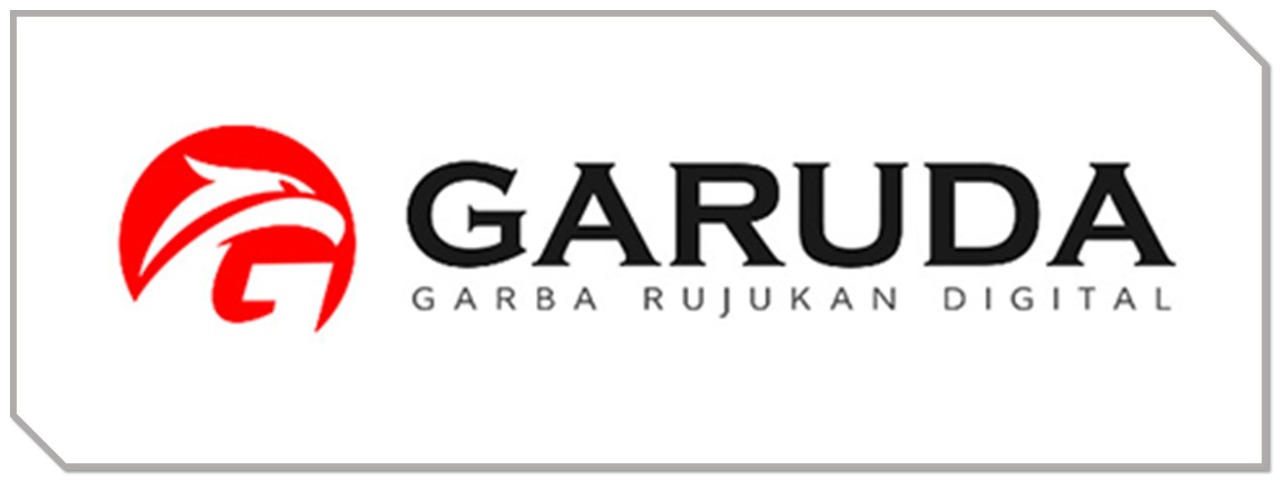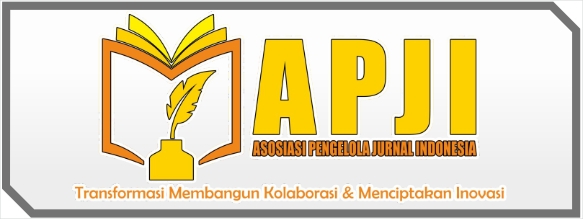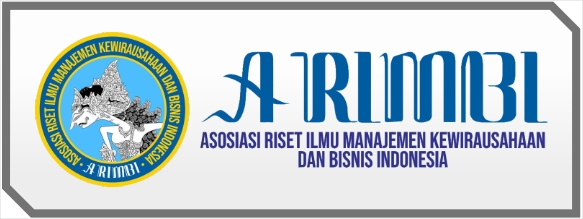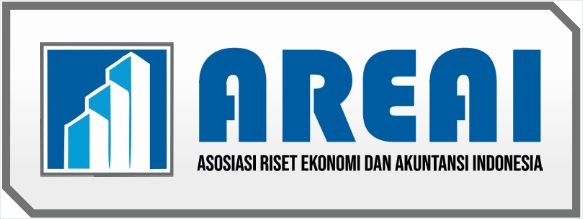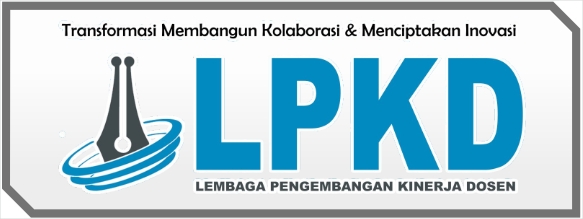PENGARUH GAYA KEPEMIMPINAN MICROMANAGE DIMEDIASI EFIKASI DIRI TERHADAP KREATIVITAS KERJA KARYAWAN GENERASI Z
DOI:
https://doi.org/10.59024/jise.v3i2.1177Keywords:
Leadership Style, Micromanage, Self-Efficacy, Work CreativityAbstract
. This study was conducted to prove that self-efficacy plays an important role in mediating the influence of micro leadership style on the work creativity of generation Z employees. The sampling technique used non-probability sampling with a sample size of 203 respondents from 6 employment sectors in Riau Province. The sample in this study came from the generation Z population born between 1997 and 2012. The variables used in this study were micromanagement leadership style as an independent variable, self-efficacy as a mediating variable and work creativity as a dependent variable. The data collection technique used a questionnaire distributed via google form and then analyzed using Smart-PLS 3. Analysis of the results of the outer model of the study obtained that all indicators and variables used were valid and reliable. In addition, an inner model analysis was carried out, the model used was fit and all hypotheses in the study were accepted. Micromanagement leadership style and self-efficacy have a significant positive effect on work creativity, micromanagement leadership style has a significant positive effect on work creativity and micromanagement leadership style through self-efficacy has a significant positive effect on work creativity. Managerial implications show that generation Z needs leaders who provide clear instructions and feedback in supporting work.
References
Akutey, A. B. (2020). Differentiating Micromanagement from Effective Management: A Manager’s Guide. 8(11), 827–833.
Anggarwati, A., & Eliyana, A. (2015). The Influence of Creative Self-Efficacy towards Creativity with Job Satisfaction as Intervening Variable at PT. Smile Island Surabaya. International Journal of Economics and Business Administration, III(Issue 1), 90–99. https://doi.org/10.35808/ijeba/65
Anggiani, S. (2020). Effect of Transformational Leadership on Employee Creativity: Perceived Organizational Support Mediator (Study Empiric At Five-Star Hotels in Jakarta). PEOPLE: International Journal of Social Sciences, 4(3), 1862–1875. https://doi.org/10.20319/pijss.2019.43.18621875
Castillo, G. A. (2018). Micromanagement Behavior : A Qualitative Empirical Phenomenological Study. 6(2), 1057–1067.
Felician, M., & Amos, O. (2024). A Critical Review of Micro-Management Practices: Constraints and Endorsed Measures in Selected Public Secondary Schools in Morogoro Municipal, Tanzania. International Journal of Education, Learning and Development, 12(5), 43–66. https://doi.org/10.37745/ijeld.2013/vol12n54366
Gassemi, K., Papastamatelou, J., & Unger, A. (2021). Time perspective influence on management leadership styles and the mediating role of self-efficacy. Leadership, Education, Personality: An Interdisciplinary Journal, 3(2), 133–143. https://doi.org/10.1365/s42681-020-00018-x
Handayani Nurhikmah, Rahmawati, I., & Lestari, H. (2022). Pengaruh Efikasi Diri Terhadap Kreatifitas Kerja Guru Pegawai Negeri Sipil (PNS) Sekolah Dasar Negeri Se-Kecamatan Cibungbulang. Primer Edukasi Journal, 1(2), 60–67. https://doi.org/10.56406/jpe.v1i2.6
Hong Shan, L., Cheah, K. S. L., & Leong, S. (2023). Leading Generation Z’s Financial Literacy Through Financial Education: Contemporary Bibliometric and Content Analysis in China. SAGE Open, 13(3), 1–18. https://doi.org/10.1177/21582440231188308
Kamarudin, N., Nizam, N. Z., Sani, A. M., Bakri, M. H., & Harahap, A. Z. M. K. (2023). The Impact of Micromanage Issue Among Manufacturing Industry: Employess Perception and Job Satisfaction. International Journal of Industrial Engineering and Production Research, 34(2), 1–14. https://doi.org/10.22068/ijiepr.34.2.6
Khairunnisa, N., & Nurmala, S. (2023). Peran Self-Efficacy Terhadap Perilaku Kerja Inovatif Pada Karyawan Industri Manufaktur: Studi Kasus Pada PT Polytama Propindo. Jurnal Interaktif, 15(2), 115–123. https://doi.org/10.21776/ub.interaktif.2023.015.02.5
Noor, S., Muhammad, A., Laila, R., & Abubakar, S. (2024). Swati Ray 1 , Joyati Das 2* , Ranjana Pande 3 , and A. Nithya 2. 13(3), 248–255. https://doi.org/https://doi.org/10.61506/01.00424
Ryan, S., & Cross, C. (2024). Micromanagement and its impact on millennial followership styles. Leadership and Organization Development Journal, 45(1), 140–152. https://doi.org/10.1108/LODJ-07-2022-0329
Sakitri, G. (2021). Selamat Datang Gen Z , Sang Penggerak Inovasi. Forum Manajemen Prasetiya Mulya, 35(2), 1–10.
Salsabila, N. I., Wisesa, A., & Wijaya, I. (2022). Gen z’s perspective on micromanaging leadership style and its impact on work performance. Eqien - Jurnal Ekonomi Dan Bisnis, 11(1), 1330–1342. https://stiemuttaqien.ac.id/ojs/index.php/OJS/article/view/772
Sekar Arum, L., Amira Zahrani, & Duha, N. A. (2023). Karakteristik Generasi Z dan Kesiapannya dalam Menghadapi Bonus Demografi 2030. Accounting Student Research Journal, 2(1), 59–72. https://doi.org/10.62108/asrj.v2i1.5812
Silvia, P., Maria Luisa, F., Francesco, A., & Michele, V. (2010). Work Self-Efficacy Scale and Search forWork Self-Efficacy Scale: A Validation Study in Spanish and Italian Cultural Contexts. Revista de Psicología Del Trabajo y de Las Organizaciones, 26(3), 201–210. https://doi.org/10.5093/tr2010v26n3a4
Sinaga, B. A. (2024). Environmental Impact and Job Satisfaction on Employee Performance with Intervening Variables Work Motivation (Case Study: Refinery-Biodiesel Plant Division of PT. X). Jurnal Indonesia Sosial Teknologi, 5(5), 2391–2402. https://doi.org/10.59141/jist.v5i5.1064
Sinaga, B. A., Utomo, K. W., & Rahayu, H. C. (2024). Enhancement of Organizational Commitment among Management Trainee Graduates: The Influence of Training, Career Development, and Work-Life Balance Mediated by Work Motivation. International Journal of Science and Society, 6(3), 27–39. https://doi.org/10.54783/ijsoc.v6i3.1223
Sinurat, E. J. (2017). Pengaruh Gaya Kepemimpinan Terhadap Kepuasan Kerja Karyawan Pada Pt. Himawan Putra Medan. Jurnal Ilmiah Methonomi, 3(2), 92–106.
Sumarni, T., R, A. N., & K, W. E. (2022). Gaya Kepemimpinan Transformasional Kepala Ruang dan Self Efficacy Perawat di Ruang Rawat Inap Rsud Dr. R. Goeteng Taroenadibrata Purbalingga. Malahayati Nursing Journal, 4(8), 2119–2131. https://doi.org/10.33024/mnj.v4i8.6783
Wijaya, N. A., & Arisetyawan, K. (2023). Faktor yang Mempengaruhi Partisipasi Kerja Gen-Z di Indoneisa. INDEPENDENT : Journal Of Economics, 3(3), 158–170. https://ejournal.unesa.ac.id/index.php/independent
Downloads
Published
How to Cite
Issue
Section
License
Copyright (c) 2025 JURNAL EKONOMI BISNIS DAN MANAJEMEN

This work is licensed under a Creative Commons Attribution-ShareAlike 4.0 International License.

